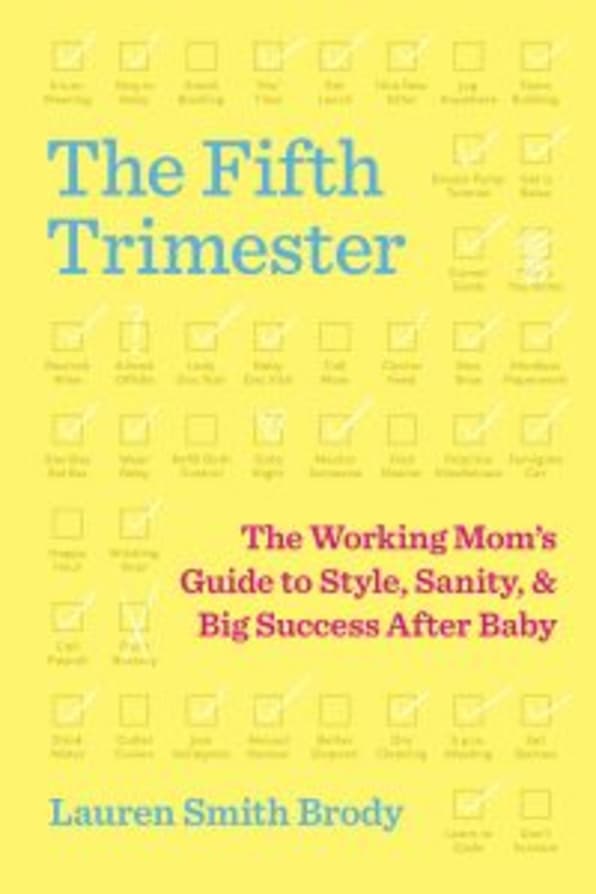Exactly What To Say In Three Awkward Post-Maternity Leave Conversations
If you are about to take parental leave or just returning from leave, you may have realized that the way you work and what you need to be your best at work has changed. Whether you need to work from home or change your schedule or duties, starting conversations can be scary. Having these conversations, however, will not only improve your working life but can be the catalyst for lasting cultural change at your company.
Says Lindsey Pollak, millennial workplace expert at The Hartford insurance company: “If you as an individual can put your request in the context of cultural change—that it’s not just me wanting something, that this is the way the workplace is changing, that these policies are going to be important moving forward, I can be an example of why we are a good employer for millennials—all of that builds toward a broader story.”
Most importantly, do not enter into these conversations with the mind-set of asking for a special accommodation. “If you feel like you’re asking for a concession, the company’s going to feel that way too,” says talent executive Marcy Axelrad. “Often, these conversations are approached in a negative way, as a conflict, or as an accommodation, versus, here’s my business proposal of what’s going to work for both of us, and I’d love to take you through it. It’s positive.”
Here’s how to approach three potentially awkward post-leave conversations:
1. How to Ask For A Raise When You Return From Leave
The simple answer here is: Ask for it the exact same way you would any other time you deserved a change in compensation.
The more complicated answer is: Ask for it the exact same way you’d ask for it at any other deserving time . . . with the knowledge, in the back of your mind, that your employer may feel that he or she has already “accommodated” you this year.
Many women I spoke to felt a tremendous pressure to increase their earnings coming back to work. Some of the financial stress is practical (you have child care to pay for), and some of it is emotional (you want to feel that working is worth it). Go ahead and talk about all that stress and swirl—with your partner, your family, your friends. But at work, focus entirely on performance.
“Asking for a raise is all business,” says Deborah Grayson Riegel, principal of the Boda Group, a leadership and team development firm, and founder of Talk Support, a communication coaching company. “Go in knowing that the least valid reason to ask for a raise is because you need more money, so take the personal out of it.” And then dive right in. “Women undersell themselves, and I think organizations take advantage of that,” Riegel says. Here’s how to approach compensation like a pro:
Game the timing. You may feel mounting pressure with each paycheck, but “save your ask for when the time is right based on track record, and hopefully based on a previous conversation,” says Riegel. What is your company’s fiscal year? When are budgets most flush, and when is the pot dry? If you haven’t discussed a bump in compensation previously, you may need to lay the groundwork now, with documentable goals, and then pick up the conversation again at an agreed-upon date.
Anticipate their post-leave hesitation . . . but then don’t stoop to it. If you make a case entirely based on performance and deliverables, that frames the conversation and will make it more obviously wrong for your boss to lean on your leave as an excuse. But she or he may still go there. “If they say, ‘But you were just on leave,’ I would get curious and calmly ask what they mean by that,” instructs Riegel.
It’s not rude, it’s a dance that will progress the conversation in real terms. “Then if they talk about the cost of covering for you while you were out, you can say that what they’re describing is the company’s job to do—paying for a fill-in—not yours. It shouldn’t come out of your compensation. It should really be a line item in their budget. It shouldn’t be your burden that they have had to accommodate what they’ve legally had to do for you.” This should steer the conversation back to performance.
2. How to Ask To Go Part-Time When That’s Uncommon Where You Work
This advice comes from Karen, a senior brand manager at Energizer, who was very conflicted about going back to work after having the first of her three sons. Here’s exactly what she did:
Partway through her leave, Karen scheduled a call with her boss, but only after doing three things to prep:
1. She researched the company’s part-time policy. “It was very deep in the corporate website, hard to find, but allegedly, part-time is allowed,” she says.
2. Karen talked herself through the worst-case scenario. “I thought, Okay, if they tell me no, what will I do? I will go back full-time but continue to look for other flexible options. And if they assume that I’m on my way out in the meantime, well, at least we’re all on the same page.”
3. She thought hard about who her strongest relationship was within management. That was who she’d approach.
Finally, the ask: Toward the end of her leave, Karen emailed her boss asking her for a time to talk. On the phone she said: “I’m coming back, and I love the company, but I’m wondering if there are any options to go part-time? I’ve looked online and found our policy, but of course I wanted to talk to you personally.” Her boss wanted to run it up the ladder and scheduled another call where they worked out the financial details. Karen would work three days at a 60% salary, which felt like a real victory, given the existing culture. “My advice is, don’t expect them to give you the world if you’re not willing to give it back and haven’t already proven that,” she says. “I was a high performer; they knew that I was committed.”
3. How To Ask To Work From Home (At Least Some Of The Time)
First of all, be sure it’s really what you want. Working from home is a great option if you want to save yourself commuting time, or schedule a pediatrician appointment at lunchtime, or have some quiet time to concentrate on cranking out work without being pulled into meetings.

Working from home is not a great option if you envision using that time to save on child care and be with your baby. A newborn may nap enough to give you eight hours of work time. A six-month-old doesn’t. And if your productivity, deliverables, and availability slip because you’re at home with your kid, you’re not setting a great precedent for your own future requests—or anyone else’s.
Still want to ask to work from home? Jennifer Dorian, general manager of Turner Classic Movies, has both asked for and granted flexibility at various moments in her career. She says, “I would start the conversation like this: ‘Hey, I know we’ve worked together for a while, and I hope you have a high level of trust in my work ethic and my quality of work. I wanted to talk to you about using my energy in the best way possible and also adapting to some of the things I need to do at home. So here’s the schedule that I would propose, if you think it works for you. And I’m pretty sure I can get everything done because we’ll still have good communication, and I’ll still be available, and I’ll really be using this time at home to focus on my assignments.”
Be aware, also, Jennifer says, that your ideal vision of this flexibility may change over time, and you can be honest about that—same goes for your employer, of course. “I would be really honest about your needs. I wouldn’t play games, or ask for more than you want in the hope that they’ll negotiate down,” she says.
You’re asking for something that requires trust, so you should demonstrate that you’re being honest from that first conversation. If you sense hesitation on their part, reassure them that they aren’t committing forever. “You could always ask, ‘Can we just try this for three weeks, or a quarter, and then reevaluate?’” she suggests. By then you’ll have proven your dependability, and if your own needs have changed again, you’ll have another opportunity to open up the conversation.
Lauren Smith Brody is the founder of The Fifth Trimester movement, which helps businesses and new parents work together to create a more family-friendly workplace culture. A longtime leader in the women’s magazine industry, Lauren was most recently the executive editor of Glamour magazine. Raised in Ohio, Texas, and Georgia, she now lives in New York City with her husband and two young sons.
This excerpt from The Fifth Trimester: The Working Mom’s Guide to Style, Sanity, and Big Success After Baby is reprinted with permission.
(47)










